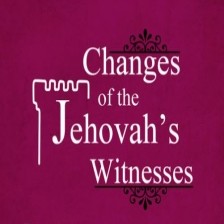Instead of Christ’s instituting the mass, or its finding its precedent in the sacrifices of the Law, the facts show that the mass is of pagan origin. According to Cardinal Newman, the Kyrie eleison, “Lord, have mercy upon us!” which words, set to music, begin the first movement of the mass of the Roman Catholic Church, are of pagan origin and have been “sanctified by their adoption into the Church”.—An Essay on the Development of Christian Doctrine, page 373.
The unbloody feature of the sacrifice of the mass goes back to ancient Babylon. (The Two Babylons, Hislop, pages 156-158) The wafers used in the mass must be round. Here again there is nothing in the Scriptures to support this requirement, but we do find a precedent in ancient Egypt. Says Wilkinson, in his Egyptians, Vol. 5, page 353: “The thin round cake occurs on all altars” and was a symbol of the sun. The requirement that one must have fasted from midnight until the time of mass likewise finds no support in the Scriptures, for the apostles had just finished eating the passover when Jesus offered them the loaf and the wine. (Matt. 26:26) But such a custom did prevail in ancient times among pagan peoples.
The Watchtower Announcing Jehovah’s Kingdom. March 1, 1953 p. 158-159
Alexander Hislop, author of The Two Babylons, although deriving the name Nimrod from Nimr, a “leopard,” and rada or rad, “to subdue,” does identify Nimrod as the god Merodach. “There is no doubt,” says he, “that Nimrod was a rebel, and that his rebellion was celebrated in ancient myths; but his name in that character was not Nimrod, but Merodach, or, as among the Romans, Mars, ‘the rebel;’ or among the Oscans of Italy, Mamers . . . , ‘The causer of rebellion.’”—Page 44, footnote, of The Two Babylons.
The Watchtower Announcing Jehovah’s Kingdom. June 1, 1964 p. 346
According to The Encyclopedia Americana (Volume 26 of the 1929 edition, page 238), the name Dumuzu in Sumerian means “the sun of life.” But The Two Babylons, by Hislop, page 245, says:
The name Tammuz, as applied to Nimrod or Osiris, was equivalent to Alorus, or the “god of fire,” and seems to have been given to him as the great purifier by fire. Tammuz is derived from tam, “to make perfect,” and muz, “fire,” and signifies “Fire the perfecter,” or “the perfecting fire.” To this meaning of the name, as well as to the character of Nimrod as the Father of the gods, the Zoroastrian verse alludes when it says: “All things are the progeny of ONE FIRE. The FATHER perfected all things, and delivered them to the second mind, whom all nations of men call the first.” . . . And hence, too, no doubt, the necessity of the fire of Purgatory to “perfect” men’s souls at last, and to purge away all the sins that they have carried with them into the unseen world.
The Watchtower Announcing Jehovah’s Kingdom. November 1, 1964 p. 665
In the book The Two Babylons, by Alexander Hislop, we read: “What means the term Easter itself? It is not a Christian name. It bears its Chaldean origin on its very forehead. Easter is nothing else than Astarte, one of the titles of Beltis, the queen of heaven, whose name, . . . as found by Layard on the Assyrian monuments, is Ishtar. . . . Such is the history of Easter. The popular observances that still attend the period of its celebration amply confirm the testimony of history as to its Babylonian character. The hot cross buns of Good Friday, and the dyed eggs of Pasch or Easter Sunday, figured in the Chaldean rites just as they do now.”—(New York, 1943), pp. 103, 107, 108; compare Jeremiah 7:18.
Reasoning From the Scriptures. 1985, 1989 ed. p. 179
